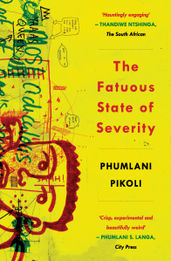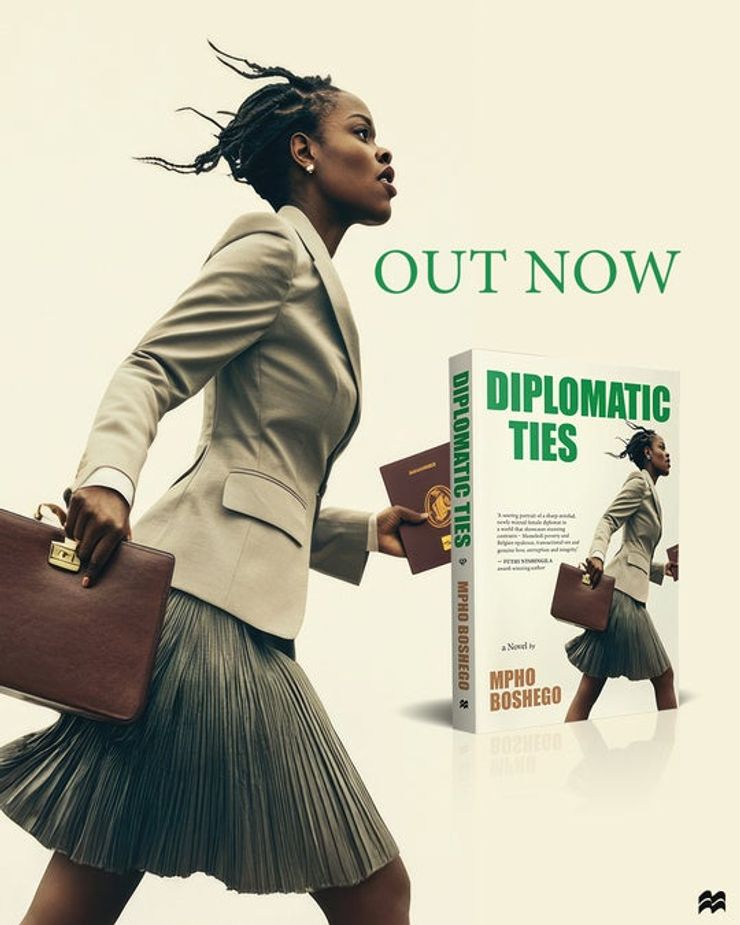Eight questions with Phumlani Pikoli
Author Q&A: eight questions with Phumlani Pikoli

30-year-old Phumlani Pikoli, is a skilled multi-media journalist, artist and author of the “crisp, experimental and beautifully weird” book of short stories #TheFatuousStateofSeverity. Pan Macmillan has published the new edition of his collection of stories, which were first self-published in 2016. There are six new stories in this edition.
The cover is striking and compliments the theme of the book. What inspired the cover?
I freestyled the initial cover via its print using a journal where I lazily scribbled the titles and some meaningless, yet seemingly profound rambling, about life and death. So after the first edition, it's dope to be able to get a lot of the artistic collaborators and myself onto the same page literally falling all over each other.
People tend to ‘judge a book by its cover’, how do you think people will relate to the cover?
I imagine them thinking: Well this looks interesting... is it literature?
What’s the context of the title page and tombstone?
The tombstone was almost the cover! But we figured it might be a little too intense considering the book itself is so live with death. It also felt like it might be a little close to home, because of the context of its birth.
Writing the first edition of your book started as a form of therapy. What was your writing process?
I was told to journal instead I played out some of the most ridiculous fictions I could think of to be honest.
What inspired the six additional short stories?
The advance and the publisher.
You’re “causing a stir in Mzansi's literary circles…” are you currently working on a new book?
Am I? I am indeed.
The book reflects your ‘wokeness’. You don't shy away from engaging in controversial dialogues around cultural and socio-economic divides. Do you think these stories have the power to speak to youth of different backgrounds?
Woke is a weird term for me. Most wokeness I happen to come across is dependent on brokeness. But I hope I'm woke? It's weird the book has meant a lot more than I expected to, to different people. Like it's lit to hear from people that this isn't purely a pity party of privilege.
What shapes and influences your bold approach and ideas?
I want to write and I like stories, so it's dope to try figure out different ways of telling different stories. Or the same stories in different ways.
The Fatuous State of Severity
by Phumlani Pikoli
The Fatuous State of Severity is a fresh collection of short stories and illustrations that explores themes surrounding the experiences of a generation of young, urban South Africans coping with the tensions of social media, language insecurities and relationships of various kinds.
Intense and provocative, this new edition of the book, which was first self-published in 2016, features six additional stories as well as an introductory essay on Phumlani Pikoli’s publishing journey.


